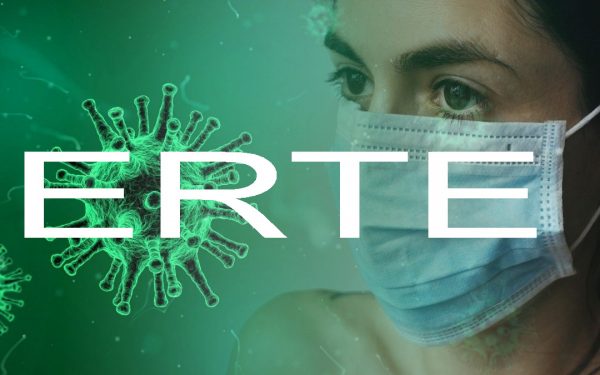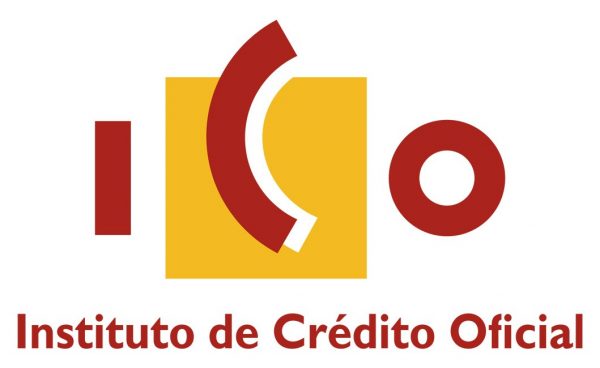
Since the state of alarm in our country was decreed in our country on Saturday, March 14, because of the pandemic caused by Covid-19, the Government has been forced to launch a series of economic aid for the coronavirus for businesses and self-employedpeople, with the aim of alleviating the strong economic crisis that is causing the virus and alleviating its impact.
Both small and medium-sized enterprises and self-employed enterprises have been hit hardest by the coronavirus, which has led to a number of extraordinary and urgent measures being taken for businesses and self-employed people.
Aware of the consequences that these groups are suffering with coronavirus, we wanted to make a summary with the aids that can be accessed.
You are interested in:
New complementary economic and social measures to tackle Covid-19.
Financial aid for the coronavirus you should know about
> ERTEs (Temporary Employment Regulation Records)
Possibly the help that is being talked about the most these days is the ERTE (Temporary Employment Regulation File), which consists of the temporary suspension of the employment of workers of an undertaking (or part of them), with the Government bonusing part of the account that the company must pay to Social Security for the workers concerned. In this way, companies and freelancers can adapt their templates to the activity,and benefit from economic savings.
THE ERTE may involve the suspension of temporary employment or a reduction in the working hours,and the reasons for it should be by force majeure (in this case coronavirus).
For the duration of the temporary suspension of employment, workers will be entitled to an unemployment benefit of 70% during the first six months,reducing to 50% from the sixth month. Although there are many companies that have decided to compensate their workers by supplementing that benefit to 100% of monthly wages.
On the other hand, once the State of Alarm is complete and when the activity returns to normal, companies will not be able to lay off workers affected by aRTE for the next six months.

You are interested in:
Coronavirus ERTE: implications, benefits and consequences for businesses
> Tax deferral
Another government-approved coronavirus financial aid has been the deferral of taxes for SMEs and self-employed persons over the next six months.
In this way, SMEs will be able todefer the payment of VAT and corporation tax, therefore expecting an injection of liquidity for this sector of about 14 billion euros. On the other hand, self-employed persons may defer payment of VAT and IRPF.
In any case, it must be made clear that it is a moratorium and not anexception, so once the situation is normalized both companies and self-employed persons will have an obligation to comply with the payment of these taxes.
You are interested in:
> Extraordinary benefit for freelancers
Any self-employed person who has had to cease his activity or has fallen by 75% of his turnover due to the coronavirus, can apply for the extraordinary benefit, with which they will receive the equivalent of 70% of the regulatory base.
In the case of minimum contribution bases, the extraordinary benefit for self-employed persons shall be around EUR 660.
The benefit is monthly, with the possibility of extending it until the end of the Alarm State,and can be requested retroactively from March 18. In addition, it can even be requested by self-employed persons who take on debts to Social Security, provided that they enter the outstanding installments within 30 days.
> Moratorium on the quota of self-employed
On the other hand, self-employed persons may also benefit from a moratorium on the share of self-employed persons for interest-free coronavirus, and may apply until 30 June. However, only self-employed persons who havenot applied for the extraordinary benefit for self-employed persons may benefit, since it already provides for the suspension of the quota.
To apply for the moratorium on the quota of self-employed persons, it must be communicated to the TGSS during the first 10 calendar days of the regulatory entry periods, and you can also request the proportional part of the month of March or days worked.
You are interested in:
→ Urgent Labour Measures Approved by Coronavirus
→ Fiscal Measures Approved by Coronavirus
> Moratorium on Social Security payments
Companies may also request a moratorium on interest-free Social Security payments over the next 6 monthsby contacting TGSS on the first 10 calendar days.
However, if a company has taken over an ERTE it will not be able to benefit from this interest-free moratorium, but they will be able to access it in 3.5% interest.
> Loan repayment deferrals from the General Secretariat of Industry
Both companies and self-employed persons may apply for the deferment of loanrepayment from the General Secretariat of Industry, provided that the following three requirements are met:
- The return period must be less than 6 months from the approval of Royal Decree 7/2020.
- The impact of coronavirus on normal activity should be justified.
- The moratorium consists of an extension of the payment time, so it must be made within the voluntary payment period.
> ICO Loans

Another economic aid for coronavirus is ICO loans for the tourism sector, accessibleto both companies and self-employed people engaged in this sector.
ICO loans consist of 400 million euros of support for businessin this sector, as it should not be forgotten that the tourism sector contributes around 15% of Spanish GDP.
Conditions for accessing ICO loans:
- You may not be in a situation of delinquency or insolvency.
- The maximum annual amount will be 500,000 euros.
- Credit cannot be used for refinancing past credits.
- The credit will be formalized with the corresponding accredited entities: Santander, Cajamar and BBVA.
- The depreciation period is 4 years with a maximum of one year of deprivation.
- The Fixed Interest Rate may be a maximum of 1.5%, including commissions.
> Guarantees of up to 80% for companies and freelancers
The Government has announced that the State will act as a guaranteeof companies and self-employed persons to private banks, with the aim of alleviating the economic impact of the coronavirus.
A package of EUR 20 billion will be usedat first, expandable as it is consumed. All aid will have retroactive effect on loans signed from 18 March.
The Government will guarantee up to 80% of the loans requested from banks, allocating half of this package to companies with fewer than 250 workers and self-employed people. For large companies up to 70% will be allocated. In the event that the aid is to renew loans, only 60% will be provided, and will not be available to cancel previous credits.
The maximum period of the guarantee is five years,and can be applied for until September 30, 2020.
> Moratorium on rent payments
Another of the most outstanding economic aid for coronavirus is the moratoriumon rental payments of commercial premises, which aims to alleviate the economic burden of SMEs and self-employed people. The moratorium will last until the end of the AlarmState, and rental contracts ending during the Alarm State will be automatically extended for as long as this situation remains.
conclusion
These are the main economic aid for coronaviruses that the Government so far envisages to help businesses and self-employed people during this health crisis. However, there are other aid exclusive to each Autonomous Community, which can also be beneficial for businesses and self-employed persons.
If you have any questions or need any clarification on any of these financial aids for companies, SMEs and freelancers, you
can contact
any of our advisors so that we can help you.








